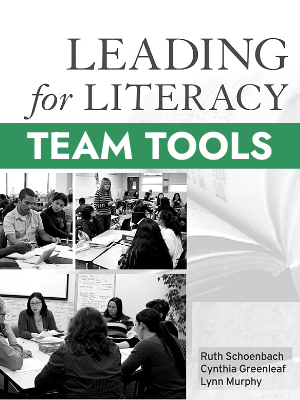Utilizing the guidelines listed in Leading for Literacy Chapter Five, Teacher Team Tool 5.1, teams can organize inquiries into how they read — the reading processes they use, the confusions they encounter, and the role of collaboration in sorting them out.
Teacher Team Tools
Principles for Team Inquiry (4.4)
Using the principles outlined in Leading for Literacy Chapter Four, Teacher Team Tool 4.4, teams have a protocol that supports making effective use of their time together.
Inquiry into Teacher Practice Goals (4.3)
When teachers invest their limited time in being part of a Reading Apprenticeship team, they have certain hopes and expectations for what they will learn and how the team will support their learning. Using the protocol outlined in Leading for Literacy Chapter Four, Teacher Team Tool 4.3, teachers can set individual learning goals and give shape to their expectations. By sharing those goals, they have a better chance of providing one another the support they may need.
Personal Reading History Protocol (4.2)
From Leading for Literacy Chapter Four, Teacher Team Tool 4.2 outlines a Personal Reading History routine. It is an opportunity to reflect on how people develop reader identities and what hinders or helps in that development. By sharing their reader histories, team members will better understand the beliefs and attitudes about reading development they bring to their work together. The activity will also help team members rehearse what it might be like to bring the Personal Reading History into their classrooms.
Norm‐Setting Protocol for Team Participation and Accountability (4.1)
Norm setting can include making basic agreements about when, where, and for what number of minutes a team will meet. From Leading for Literacy Chapter Four, Teacher Team Tool 4.1 provides a helpful norm-setting protocol for team participation and accountability.
What May an Arrow Mean? (3.2)
From Leading for Literacy Chapter Three, Teacher Team Tool 3.2 provides a sample text (science diagram), for teachers’ inquiry into the perhaps surprising puzzles their own texts may present inexperienced readers.

